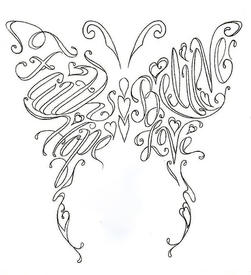How to get rid of a plateau

PercivalHackworth
Posts: 1,437 Member
Some of my friends are lately noticed their had hit a plateau, or they where into one without really noticing it. We will see how we could make sure we are hitting one, and how to get rid of it
A small note also :
Some of my peeps want to make the weight decreasing faster by decreasing their intakes even more, which is not a good idea.
# Characteristics
Well the first simple one, is simply....a weight stable across months or even years. An acceptable range could go from 1 to 6 lbs, depending on several factors :
- You main hydration state
- The composition of your diet
- The time you maintained your intakes.
That zone, is for some researchers called a "setpoint" - think of it as a zone, a weight both endocrine and nervous systems try to maintain, no matter what happen.
That state is referred as the Homeostatic one.
This is the application of the thermoregulation when it comes to weight :
Let's suppose your weight drops some degrees :
- The hypothalamus triggers several mechanisms that all main one thing : maintain your reference temperature.
The thermogenesis is made by a vasodilation, an increase in the metabolism speed ( Catecholamines increase in the bloodstream), shivers, T4 Thyroxine release, etc... (The thermolysis is the antagonist of the thermogenesis)
A similar pattern has been observed to weight :
- When you are able to get out of that zone, the nervous systems triggers severals mechanisms that all aim the same thing : put yourself back into that range. In extenso, that reference weight (let's call it W°) is built around a set of mechanisms. Genetics and Evolution patterns across generations would modulate that setpoint :
#1 - Weight loss : under that zone
Ability to store food increases
Thoughts about food increase
Metabolism drops
After a delay when the diet is unbearable physiologically , a polyphagia is observed, making the dieter gain back the weight pretty quickly.
#2 - Weigh gain : above that zone
Ability to store food decreases
Obsession about food decreases - the dieter eats less, is less hunger
Metabolism increases
Activity level increases without really noticing
The weight remain stable or slightly drops across months
# Weight variations
I often read people complaining about the weight they gained after a binge - while it is water.
The fluid regulation is often tricky when it comes to weight measurement. Here are the situations that would likely make the weight a "false" one :
- After a binge, especially if that one is loaded in carbs, you would store the glycogen in both muscles and the liver. One gram of glycogen bounds to 3,7 g of water.
- After a good training, the body would retain the water for tissues healing.
You need to be able to determine whether or not the weight increase/ decreases corresponds to fluids - in extenso - which part is tied to real gain/ loss (fat gain/ fat loss/ muscle gain/ muscles loss)
The four elements here are in fact way more slower that water retention that could happen in the hour. While days or weeks are required for fat and muscle (not to mention bones density)
When it comes to a plateau, the water induces the famous variations, while the plateau beneath has a less big variations margin.
Here is my old plateau :
The sudden increase is simply water retention

You also see how the weight quickly came back to the setpoint.
Characteristics of the dieters with a plateau
I also noticed the following pattern :
- The traditional one, the human impatience, ending in big deficits (45-50% across weeks)
- The zig-zag when it comes to intakes
- The "fear" to eat more
- The lost of rationality when it comes to water weight, ending in decreased intakes
- A demotivation, due to a weight that goes up despite the reduced intakes
- Increases are getting bigger, making the plateau stronger.
- The weight is not stable at all, a bigger proportions to W° variations
- Too much exercise
- Not enough rest
# Protocol
In order to get rid of a plateau, you all know the answer "EAT MORE" - truth is, it is not that simple. Some experience an increase in weight just after, and decide then to go to their old intakes ; making them keeping the weight in that comfy zone +/- 2 lbs for W°
Part 1 - Maintenance or deload
The first thing to do is imho to eat at maintenance during a couple of weeks. For long diets with big deficits (5 or 6 months), I'd advise a 4-6 weeks of TDEE.
During those weeks, you would :
- Gain more weight (I'd say 2 lbs tops, not sure though), but also stabilize your weight (no more wazoo variations)
Part 2 - Deficit
Once the weight is stable, I'd put a small deficit (no more than 10%), which would allow you to slowly but continually lose weight.
After a month @ 10% deficit, a 20% deficit MAX could be used, only if the 10% doesn't give satisfaction.
Part 3- Rest
During the first week (deload) you would also stop your training routine.
Part 4- Routine update
If it's not the case, put more rest days in your routine
It's pretty simple, it only requires consistency in your moves. Don't change your intakes or macros everyday, and keep eating, it is by being consistent that you would get rid of it, not by being afraid by some water
The next post would be about weight gain, and how to make sure to make your trainings efficient - meaning gaining muscles :-)
We worked a bit with some peeps on weight loss optimisation here, if you want to dig more :
http://www.myfitnesspal.com/topics/show/562419-weight-loss-strategies-to-optimize-it
Cheerz
A small note also :
Some of my peeps want to make the weight decreasing faster by decreasing their intakes even more, which is not a good idea.
# Characteristics
Well the first simple one, is simply....a weight stable across months or even years. An acceptable range could go from 1 to 6 lbs, depending on several factors :
- You main hydration state
- The composition of your diet
- The time you maintained your intakes.
That zone, is for some researchers called a "setpoint" - think of it as a zone, a weight both endocrine and nervous systems try to maintain, no matter what happen.
That state is referred as the Homeostatic one.
This is the application of the thermoregulation when it comes to weight :
Let's suppose your weight drops some degrees :
- The hypothalamus triggers several mechanisms that all main one thing : maintain your reference temperature.
The thermogenesis is made by a vasodilation, an increase in the metabolism speed ( Catecholamines increase in the bloodstream), shivers, T4 Thyroxine release, etc... (The thermolysis is the antagonist of the thermogenesis)
A similar pattern has been observed to weight :
- When you are able to get out of that zone, the nervous systems triggers severals mechanisms that all aim the same thing : put yourself back into that range. In extenso, that reference weight (let's call it W°) is built around a set of mechanisms. Genetics and Evolution patterns across generations would modulate that setpoint :
#1 - Weight loss : under that zone
Ability to store food increases
Thoughts about food increase
Metabolism drops
After a delay when the diet is unbearable physiologically , a polyphagia is observed, making the dieter gain back the weight pretty quickly.
#2 - Weigh gain : above that zone
Ability to store food decreases
Obsession about food decreases - the dieter eats less, is less hunger
Metabolism increases
Activity level increases without really noticing
The weight remain stable or slightly drops across months
# Weight variations
I often read people complaining about the weight they gained after a binge - while it is water.
The fluid regulation is often tricky when it comes to weight measurement. Here are the situations that would likely make the weight a "false" one :
- After a binge, especially if that one is loaded in carbs, you would store the glycogen in both muscles and the liver. One gram of glycogen bounds to 3,7 g of water.
- After a good training, the body would retain the water for tissues healing.
You need to be able to determine whether or not the weight increase/ decreases corresponds to fluids - in extenso - which part is tied to real gain/ loss (fat gain/ fat loss/ muscle gain/ muscles loss)
The four elements here are in fact way more slower that water retention that could happen in the hour. While days or weeks are required for fat and muscle (not to mention bones density)
When it comes to a plateau, the water induces the famous variations, while the plateau beneath has a less big variations margin.
Here is my old plateau :
The sudden increase is simply water retention

You also see how the weight quickly came back to the setpoint.
Characteristics of the dieters with a plateau
I also noticed the following pattern :
- The traditional one, the human impatience, ending in big deficits (45-50% across weeks)
- The zig-zag when it comes to intakes
- The "fear" to eat more
- The lost of rationality when it comes to water weight, ending in decreased intakes
- A demotivation, due to a weight that goes up despite the reduced intakes
- Increases are getting bigger, making the plateau stronger.
- The weight is not stable at all, a bigger proportions to W° variations
- Too much exercise
- Not enough rest
# Protocol
In order to get rid of a plateau, you all know the answer "EAT MORE" - truth is, it is not that simple. Some experience an increase in weight just after, and decide then to go to their old intakes ; making them keeping the weight in that comfy zone +/- 2 lbs for W°
Part 1 - Maintenance or deload
The first thing to do is imho to eat at maintenance during a couple of weeks. For long diets with big deficits (5 or 6 months), I'd advise a 4-6 weeks of TDEE.
During those weeks, you would :
- Gain more weight (I'd say 2 lbs tops, not sure though), but also stabilize your weight (no more wazoo variations)
Part 2 - Deficit
Once the weight is stable, I'd put a small deficit (no more than 10%), which would allow you to slowly but continually lose weight.
After a month @ 10% deficit, a 20% deficit MAX could be used, only if the 10% doesn't give satisfaction.
Part 3- Rest
During the first week (deload) you would also stop your training routine.
Part 4- Routine update
If it's not the case, put more rest days in your routine
It's pretty simple, it only requires consistency in your moves. Don't change your intakes or macros everyday, and keep eating, it is by being consistent that you would get rid of it, not by being afraid by some water
The next post would be about weight gain, and how to make sure to make your trainings efficient - meaning gaining muscles :-)
We worked a bit with some peeps on weight loss optimisation here, if you want to dig more :
http://www.myfitnesspal.com/topics/show/562419-weight-loss-strategies-to-optimize-it
Cheerz
0
Replies
-
B-e-a-utiful!0
-
Awesome post Razique!0
-
thank you! awesome!0
-
Thank you so much for the time you put into this...very inspiring!0
-
As always Raz....you da man!0
-
bump0
-
Great information!0
-
Awesome stuff .... Thanks!0
-
Thank guys

freel free to relate your experience, always interesting0 -
Thank goodness there are posts like this for us new people to the site, thank you so much. I joined 5 weeks ago and input my stats and it gave me calories of 1470 to lose 2lbs a week (thought this was the way to go to lose weight from my start weight of 259 lbs) so the first week I lost 6lbs and was delighted. Then I started to read posts like this, found out my bmr was around 1890 realised I wasn't eating enough and plunged straight in and upped my calories to 2570. Third week into this it has been hard seeing the scales go back up, not by as much as I thought only 3lbs, then get on today and I am DOWN to 254 lbs. Last week I was unable to exercise much due to having sciatica. Undecided now if in a week's time (after one month of upping) if I need to increase or decrease by 10% as still not found the point at which I maintain but posts like yours have helped me out enormously. I never thought upping my calories when I am this weight would work. A few years ago I lost 9 stones in weight and gained most of it back by starving myself so I am determined to find a way that works this time and end this vicious cycle, thanks again, Mandy0
-
sure

Glad you found out something good for you0 -
bump0
-
I love reading your posts! -thank you for always providing us with fantastic information-0
-
I love you silly!0
-
Great post bro!
A.C.E. Certified Personal and Group FitnessTrainer
IDEA Fitness member
Kickboxing Certified Instructor
Been in fitness for 28+ years and have studied kinesiology and nutrition0 -
Cool. I've been stuck in the plateau since middle of last month.0
-
Bump0
-
Bump0
-
thanks for this post0
-
Good information ... Thank you0
-
thanks ... bump for later reference0
-
thanks!
 0
0 -
BUMP0
-
bump!0
-
bump0
-
Bump0
-
thank you Razique:flowerforyou: I've hit that dreaded plateau like everyone and upped calories but still not seeing the results.(well scale-wise. Not complaining about other improvements:)) May up more and will look into this further. In the meanwhile, I too would love to hear from other experiences:)0
-
Bump0
-
bump0
-
Thanks.. great post. It more or less explains my weight loss history before and since joining this site.
In brief, I have gone from very active 5 years ago (armed forces) to very sedentary.
such a major change is bound to have consequences and whilst I was overweight whilst in the armed forces (towards the top end of a healthy BMI), when I left and took a completely sedentary desk bound job I gained weight quite rapidly.
I knew that this would likely be the case and joined a gym to try to up my calorie burn, but have really struggled to regain anything like my former activity level and the weight slowly crept up.
Last january I reached my heaviest ever of 206lbs and really decided to do something about it. I took up tennis, reduced my calorie intake and dropped 30lbs by October. How could I not think that I was doing it correctly with a drop like that? However, the tennis season ended and by christmas I had put 15lbs back on.
In January of this year my daughter introduced me to MFP (mighty fine people?) and it has completely changed how I do things. At first, I just returned to doing what had been successful the previous year, but this time actually logging my net calories. I was quite staggered to see that on days I was playing tennis, which was most days, I was netting less than 800 calories per day. My diary is open, go look at February!
Over the past few months, reading posts like this, I have increased my knowledge to a point that I know exactly what to do in order to lose weight and have never felt so in control. Since late Feb, I ate at maintenance for 2 months and lost nothing (obviously!) to establish exactly what my BMR and TDEE were. The fitbit was really useful in helping me to deduce these.
During this time, I also started going to circuit training to do some strength training along with the cardio that tennis provides.
The difference has ben staggering. Whilst not losing weight, (in fact gaining 7lbs) I have dropped nearly 4% in body fat, am fitting into jeans that I bought at my lightest (20lbs below what I am now) and they are loose. I can see muscle definition begining to appear and am beating personal bests in my activity all of the time.
I have now reduced my calories by about 1500 per week, in order to start a controlled reduction in my weight and am seeing exactly that on the scale.
I got this! I know what to do to achieve the results that I want and it is due to posts such as this that I know what to do.
Thanks again
Ian0
This discussion has been closed.
Categories
- All Categories
- 1.4M Health, Wellness and Goals
- 398.1K Introduce Yourself
- 44.7K Getting Started
- 261K Health and Weight Loss
- 176.4K Food and Nutrition
- 47.7K Recipes
- 233K Fitness and Exercise
- 462 Sleep, Mindfulness and Overall Wellness
- 6.5K Goal: Maintaining Weight
- 8.7K Goal: Gaining Weight and Body Building
- 153.5K Motivation and Support
- 8.4K Challenges
- 1.4K Debate Club
- 96.5K Chit-Chat
- 2.6K Fun and Games
- 4.8K MyFitnessPal Information
- 12 News and Announcements
- 21 MyFitnessPal Academy
- 1.5K Feature Suggestions and Ideas
- 3.2K MyFitnessPal Tech Support Questions

























